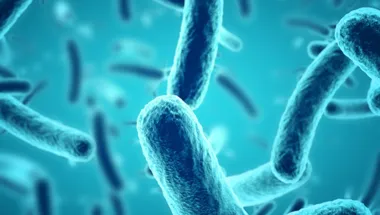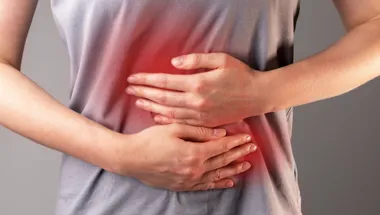
Konstantinos Gkikas
Lecturer in Nutritional Sciences
Biography
Dr Konstantinos Gkikas is a Lecturer in the Department of Nutritional Sciences at King’s College London. He is a registered dietitian in Greece and a nutrition researcher specialising in the dietary management of inflammatory bowel disease (IBD). Dr Gkikas completed his BSc in Nutrition and Dietetics at Harokopio University in Greece. He went on to earn an MSc in Human Nutrition with specialisation in Clinical Nutrition from the University of Glasgow, UK, where he graduated top of his class with distinction. He subsequently obtained his PhD in Prof Gerasimidis's lab, investigating the role of diet across different stages of Crohn’s disease. As a postdoctoral research associate, he served as the lead field researcher on one of the largest multicentre, dietary clinical trials in paediatric Crohn’s disease in the UK.
His research focuses on the role of diet in the management of gastrointestinal conditions and particularly the interactions between diet, the gut microbiome, and the immune system. He is also interested in the use of dietary interventions for the management of other autoimmune conditions, such as lupus and juvenile idiopathic arthritis, as well as personalised nutrition approaches and the development of novel biomarkers of dietary intake.
In 2024, Dr Gkikas was awarded a grant as a co-investigator from the European Crohn’s and Colitis Organisation (ECCO) to study dietary triggers of gut inflammation and to identify novel biomarkers of diet intake in paediatric Crohn’s disease. He has published original research in internationally leading peer-reviewed journals in nutrition and gastroenterology and has presented his research at national and international conferences.
Dr Gkikas is an active member of the European Crohn’s and Colitis Organisation, where he recently contributed to the first-ever Consensus guidelines on diet in IBD. He is also a member of the Basic and Translational Research Working Group of the European Society for Paediatric Gastroenterology, Hepatology and Nutrition (ESPGHAN). His teaching interests include nutrition in gut health, dietary and nutritional assessment, research methods, and statistical methods in nutrition. He holds Associate Fellowship of Recognising Excellence in Teaching from the University of Glasgow.
He is passionate about education and mentoring the new generation of nutrition scientists.
Research

Dietary assessment and dietary biomarkers
A key limitation in nutrition research is that current methods available for dietary assessment, including food frequency questionnaires (FFQs), food diaries or dietary recalls, are known to be error-prone and inaccurate, as they rely on self-report assessment which are subject to bias.

Gut health and diet
Maintaing gut health, and preventing gastrointestinal disease are important features of health and well being

Maternal and child nutrition
Women and children have unique nutritional requirements. Emerging evidence highlights that nutrition during early life, especially the period from conception until the first two years of life, plays an important role in setting the health trajectory of an individual and even future generations.

Gut disorders (IBS, IBD) and diet
Irritable bowel syndrome (IBS) and inflammatory bowel disease (IBD) are common gastrointestinal disorders that have a significant impact on patients' quality of life, and are associated with comorbidieties.

Safe and sustainable diets for a healthy body and mind (SSuDs)
This Research Interest Group on Safe and Sustainable Diets for a Healthy Body And Mind provides a unique opportunity for the King’s research community to address the challenges of safe and sustainable diets across a range of health outcomes
Research

Dietary assessment and dietary biomarkers
A key limitation in nutrition research is that current methods available for dietary assessment, including food frequency questionnaires (FFQs), food diaries or dietary recalls, are known to be error-prone and inaccurate, as they rely on self-report assessment which are subject to bias.

Gut health and diet
Maintaing gut health, and preventing gastrointestinal disease are important features of health and well being

Maternal and child nutrition
Women and children have unique nutritional requirements. Emerging evidence highlights that nutrition during early life, especially the period from conception until the first two years of life, plays an important role in setting the health trajectory of an individual and even future generations.

Gut disorders (IBS, IBD) and diet
Irritable bowel syndrome (IBS) and inflammatory bowel disease (IBD) are common gastrointestinal disorders that have a significant impact on patients' quality of life, and are associated with comorbidieties.

Safe and sustainable diets for a healthy body and mind (SSuDs)
This Research Interest Group on Safe and Sustainable Diets for a Healthy Body And Mind provides a unique opportunity for the King’s research community to address the challenges of safe and sustainable diets across a range of health outcomes
